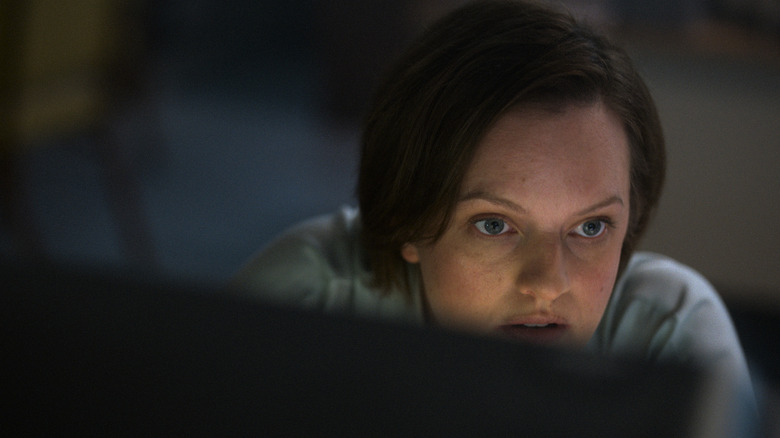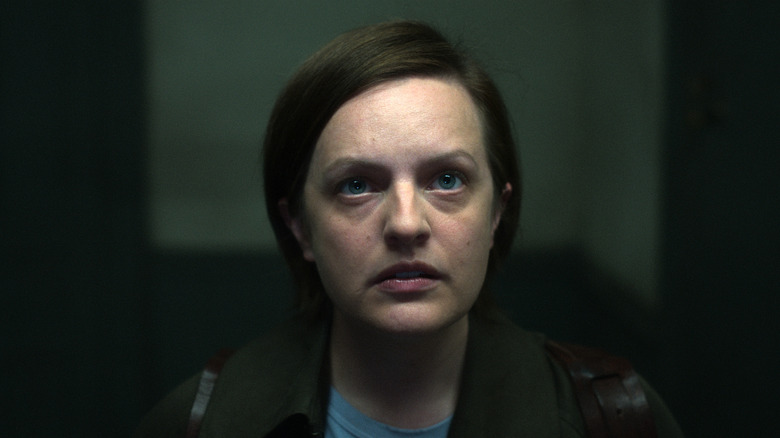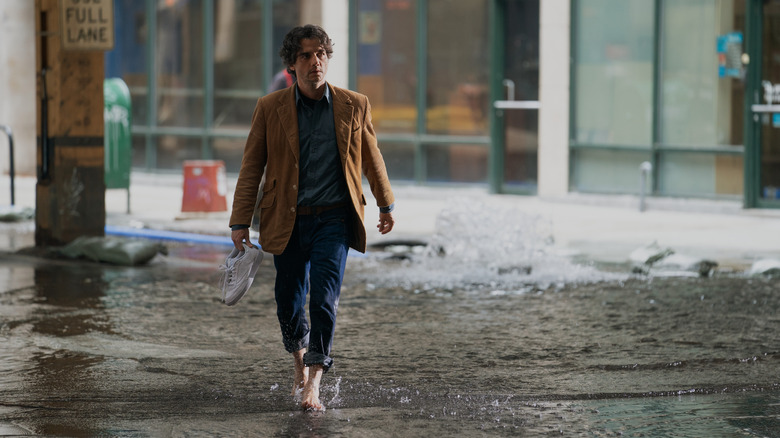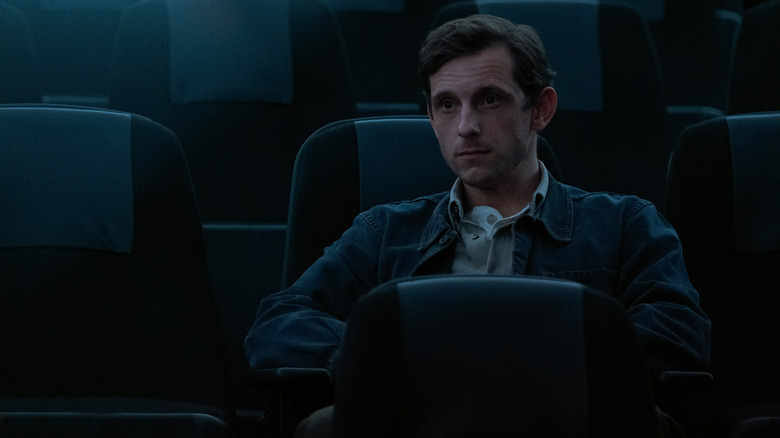
If you've been watching TV over the past decade, you've likely seen at least one show directed by the great Michelle MacLaren. During the era in which the number of scripted shows began to balloon to then-astronomical levels, MacLaren made a name for herself by consistently delivering high quality work and collaborating with some of the biggest names in the business. Through shows like "Breaking Bad," "Game of Thrones," "The Walking Dead," "The Leftovers," "Westworld," "Modern Family," and "Better Call Saul," she established herself as one of the most talented directors working today and became a mainstay on fan wishlists for major blockbuster projects. She came close to directing an adaptation of "Cowboy Ninja Viking" with Chris Pratt in the lead role a few years ago, only for that project to fall apart weeks before shooting was scheduled to begin. Aside from a 2006 direct-to-video feature called "Population 436," MacLaren has stuck to the small screen, and her latest project is a mystery drama for Apple TV+ called "Shining Girls" which stars Elisabeth Moss as a woman whose reality is constantly shifting around her.
MacLaren directed the first two episodes and is an executive producer on the series, and I had the privilege to speak with her about setting the tone for this show, how she speaks to actors on set, what films served as inspirations, her approach to directing, and more.
"It's Really About Where To Put The Camera In Each Particular Moment That's Going To Best Tell The Story"

Tell me about establishing the visual style here. What conversations did you have with [showrunner] Silka [Luisa] early on about the look of this show?
Well, we talked about the fact that it is a genre-bending show. I pitched the idea that it should be very grounded and very real. I feel that the time shifts, what Silka came up with, are so brilliant. They're a metaphor for the aftermath of trauma. So I thought, they should be something that are very real, and grounded, and very tangible. So I thought about starting out with introducing them editorially, which I think makes you wonder, "Did something actually change, or is this person going crazy?" It throws you off balance. Then as they evolve, they get bigger and bigger, but we really approach them in a very simplistic manner. Eventually CGI is involved, but not in a massively huge way. Because all the directors -- Lizzie [Moss], and Daina Reid, and myself -- we all wanted them to be a very realistic approach. That was one of the things. Then just really embracing the time periods, and really trying to get the feel, and the smell, and the look, and the colors and everything right, and really transfer the audience to those various time periods.
What was the approach for you in terms of the way that you moved the camera?
Well, it's funny because a lot of people will ask me, "So, what's your style? What's your specific thing for this show?" or whatever it is I'm working on. To me, it's really about where to put the camera in each particular moment that's going to best tell the story. So there's certain movies that I drew on for this, such as "All The President's Men," David Fincher's "Se7en," "Zodiac." And Michael Mann's "The Insider." I would say it was one of my biggest influences, because I find that has a very voyeuristic quality to it. [Russell Crowe's character] feels that he's being watched, and Kirby feels like she's being watched, and it's very unsettling. These women are being stalked. It is, as I said, a very unsettling feeling. So that is something that I really wanted to bring to it, hopefully put you into Kirby's head -- or whoever's point of view we are in at the time, but most of it is told from Kirby's point of view -- and feel the unbalance, feel the unsettling of what's going on. In episode 2, when Julia Madrigal's in her house and she feels like she's being watched and she's being stalked, there's definitely a thriller aspect to that. So I would say that it really depends on the scene and the moment. In the newsroom, the camera moves. It's fluid, it's happening, there's lots of energy. So it just is what drives that particular moment that we need to tell the story.
"Sometimes When You Get Out Of Your Comfort Zone, That's When Some Of The Magic Can Happen"

I think a lot of our readers will know you best from your terrific work on "Breaking Bad" and "Game of Thrones." Was there anything specific that you learned while making those shows that you were able to bring with you and put to good use while making "Shining Girls?"
I learn something new on everything that I do. I would use different tools, so to speak, on different shows. There's certain things I would do on "Breaking Bad" I wouldn't do on "Game of Thrones," and vice versa. But the thing that I learned most from these, and I always try to embrace, is to challenge myself, to put myself out of my comfort zone, to do things that scare me. I mean that in a good way, to push the boundaries and push the limits. I find that, sometimes when you get out of your comfort zone, that's when some of the magic can happen. Sometimes you think, "Oh gosh, I've gone too far." I learned that mostly on an episode I did years ago on "Breaking Bad" called "One Minute." I thought, "Oh my gosh, we've gone too far. The audience is never going to watch this." That's not what happened. (laughs) Never in a million years did I think what was going to happen, happened. So I would say, get out of your comfort zone, challenge yourself. Sometimes it works, sometimes it doesn't. But that's where the magic can happen.
I sometimes fall into the trap of thinking about directors as merely composers of shots, but the job obviously consists of much more than that. Tell me about the way that you talk to the actors on this project.
Well, when I talk with actors, I always come from a place, obviously, of character. I always have a reason why I'm giving a note. Talking to each actor is different, so you have to find your way of communicating with each individual person. We're all different individuals, so we have to find the best way to talk to each actor. But I always find that being really honest, and open, and clear about why I'm giving a note. Sometimes I don't know why, and I have to be honest about that. "Will you try this? Because there's something that makes me feel like we should try it this way, and I can't put my finger on it, but X, Y, Z." In this particular instance, it was different with each character, obviously. But Kirby's character, in particular, Lizzie and I talked a lot about the fact that she starts out very vulnerable, and she's covering herself with her clothes. She doesn't look people in the eye. She's constantly feeling like somebody's watching her. It's just a very unnerving way to live your life. Then slowly, she starts to get more confident. Slowly, she starts to crawl her way back and get control back of her life, as she confronts her trauma and what happens to her and goes after the person that attacked her. So we talked a lot about that evolution. I think just having really open, honest, clear conversations about the character, the arc of the character, and knowing where the character's at in any particular moment. Also being really, really open to what the actor is bringing to the table. That is huge. They're the one who is living it and feeling it. I want to know what they have to contribute.
"I Go In With A Plan"

Since no production ever goes completely as planned, do you remember a specific instance of you being thrown a curve ball on the set of the show, and having to pivot to work around that unexpected obstacle?
Oh, I'm sure. Many. Yeah. Let's see. Oh my gosh. So many, because it's inevitable that things will happen. Then sometimes, things that you think will go wrong don't [go wrong], so that's always a nice surprise, too. I'm so sorry, I can't think of anything in particular off the bat, that wouldn't throw somebody under the bus that I don't want to throw under, because it just happened.
Totally understood.
But here's what I will say: I try to be as prepared as possible. I go in with a plan, because when things change -- because they will -- then at least I understand, what is the arc of the scene? What's the way in? What's the way out? Whose point of view am I in? Then when you are thrown those curveballs, which you inevitably will be, then you can adjust. You can punt. You can figure out how you can move around this, but hopefully hang on to those important elements.
Are you still attached to "Cowboy Ninja Viking?" Can you tell me what went down with that version that was scrapped right before filming started a few years ago?
Oh my gosh. It's so funny. I'm actually in Berlin prepping something right now, and we were in Berlin [for that]. I have no idea if that's going to come back or not. It was very heartbreaking, something completely out of my control. We were, hopefully, going to make something pretty special and crazy and wonderful. Who knows? If it comes back, fantastic. But I don't know.
The first three episodes of "Shining Girls" are streaming now on Apple TV+.
Read this next: 13 Shows Like Manifest You Can Binge Watch Right Now
The post Shining Girls Director Michelle MacLaren on Her Approach to the Craft and Her Inspirations [Interview] appeared first on /Film.
0 Comments